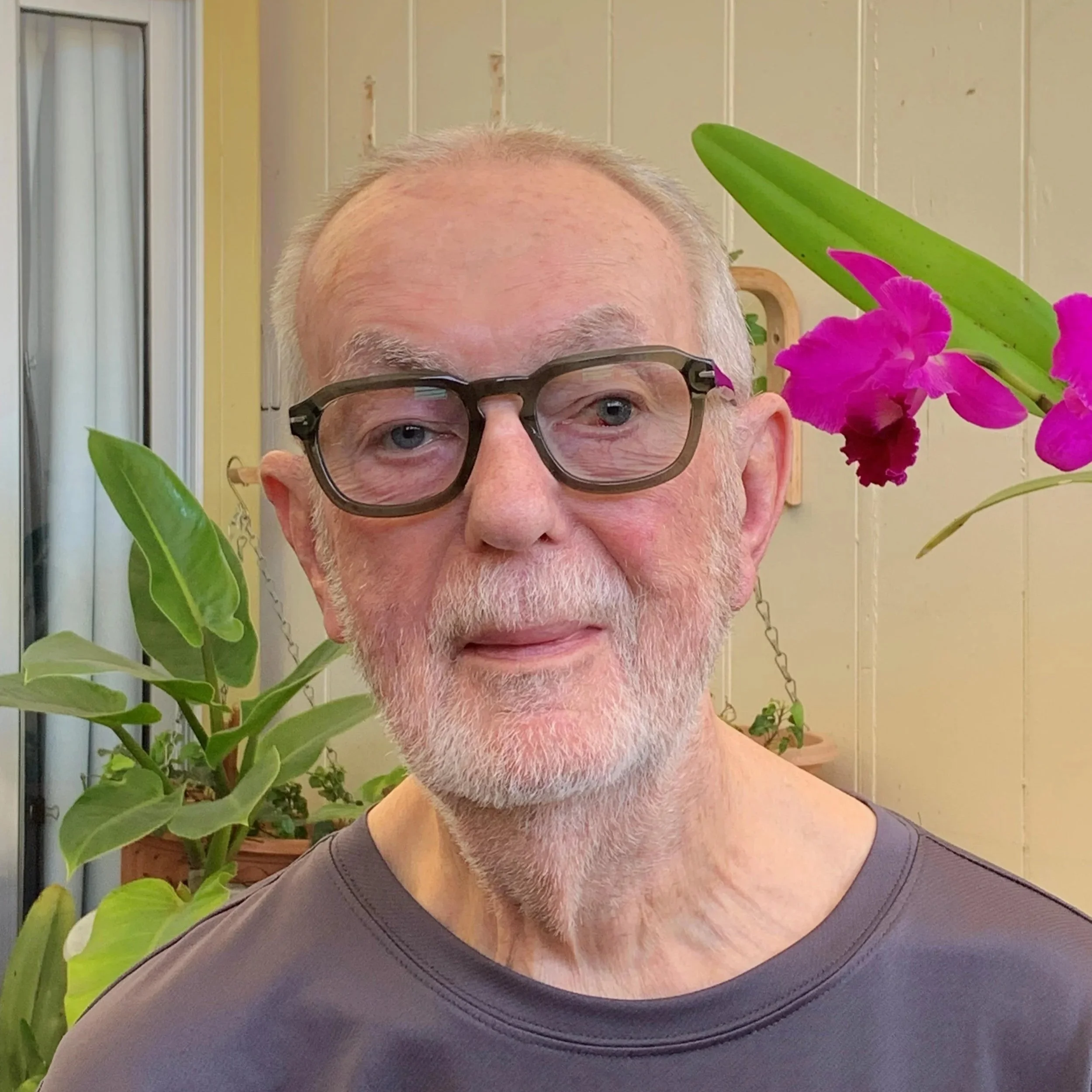Introducing Early Quakers — Episode 2: George Fox
Episode 2 Summary
George Fox’s early life was marked by spiritual searching, rejection of religious authority, and a profound revelation that Christ could speak directly to his condition. Episode 2 explores how these experiences shaped core Quaker beliefs in simplicity, direct spiritual experience, and equality in ministry.
Show Credits
Presented by: Silver Wattle Quaker Centre
Written and Narrated by: Michael Corbett
Introductions Read by: Ann Zubrick, Board Member, Silver Wattle
Produced and Edited by: Holly Dhynes, Quakers Australia
Based on materials originally developed by: Michael Corbett, with gratitude to David Johnson
Produced on Ngambri–Ngunnawal land, near Weereewa (Lake George), where Silver Wattle Quaker Centre is located. This series includes contributions from Friends across Australia and around the world.
Music: Classical Guitar by Mantikore (licensed from AudioJungle)
Website: https://silverwattle.org.au/podcast
Explore the series on these platforms
-
Transcript for Episode 2: George Fox
Ann: Welcome to this podcast series coming courtesy of Silver Wattle Quaker Centre, located in central New South Wales on the edge of Werriwa or Lake George, the largest freshwater lake in Australia. We acknowledge and give thanks for First Nations groups’ care of Country. We commit to its ongoing care.
I’m Ann Zubrick, a member of the Silver Wattle Board.
In October 2023, Michael Corbett, a Queensland Quaker, attended a course at SW exploring the lives of remarkable men and women in the latter part of the 17th century who became early Quakers. He subsequently compiled these stories to share in nine podcast episodes.
We hope these stories inspire and inform you. You can explore more about Silver Wattle’s retreats and learning opportunities — both in-person and online — at silverwattle.org.au.
Here is Introducing Early Quakers: Episode 2 – A brief introduction of George Fox, narrated by Michael Corbett.
Michael: George Fox was born in 1624. He was the eldest of 4 children and lived with his parents near Leicestershire - a stronghold of the Puritans. His father, Christopher, was a successful weaver, a churchwarden and relatively wealthy. There is no record of any formal schooling, but George learned to read and write. As he grew up, George’s relatives ‘thought to have made me a priest’ but he was apprenticed to a shoemaker and grazier. This suited his contemplative temperament, and he became known for his dealings with the wool traders on behalf of his master. The time he spent as a shepherd was important to the formation of his view of ‘simplicity’ - humility and the abandonment of luxury. Towards the end of his life, he wrote that Abel, Jacob, Moses, and David were all keepers of sheep or cattle, and so learned education should not be seen as a qualification for ministry. When he was 19 years old, he left his home and moved towards London in a state of mental torment and confusion. The Civil War had begun, and he passed many troops on his travels. He alternately shut himself in his room for days or went out alone into the countryside. After almost a year he returned to his home and had many discussions with the local clergyman on religious matters, but they disagreed on so many issues that George was called ‘mad and spoke against him’.
Over the next few years George travelled around the country which allowed his particular religious beliefs to take shape. He often sought the company of clergy but found no comfort from them as they were unable to help with what was troubling him. He became fascinated by the Bible, which he studied, and he hoped to find among the ‘English Dissenters’ a spiritual understanding that was absent from the established church but fell out with one group because he maintained that women had souls. Then I heard a voice which said, “there is one, even Jesus Christ, that can speak to thy condition, namely, that I might give him all the glory;...Thus when God doth work, who shall prevent it. And I knew this experimentally’.
He later came to what he deemed a deep understanding on Christian beliefs, among his ideas were:
Rituals can be safely ignored, as long as one experiences true spiritual conversion.
The qualification for ministry is given by the Holy Spirit, not by ecclesiastical study. This implies that anyone has the right to minister, assuming the Spirit guides them, including women and children.
God “dwelleth in the hearts of his obedient people.” Religious experience is not confined to a church building. George would just as soon worship in fields and orchards, believing that God’s presence could be felt everywhere.
George also made no clear distinction between Father, Son and Holy Spirit.
He then reached, in his view, that God was everywhere, and anyone could preach, the established church was unnecessary and a university qualification irrelevant for a preacher.
Conflict with the civil authorities was inevitable. George was imprisoned for the first time in Nottingham in 1649, in Derby in 1650 for blasphemy; a judge mocked Fox’s exhortation to “tremble at the word of the Lord”, calling him and his followers “Quakers’’. After he refused to fight against the return of the monarchy [or take up arms for any reason] his sentence was doubled. The refusal to swear oaths or take up arms came to be much more important in his later public statements
In 1647, George felt that God led him to ascend Pendle Hill where he had a vision of many souls coming to Christ. He then went to Sedbergh, where he had heard a group of Seekers were meeting and he preached to over one thousand people. At the end of the month he stayed in Swarthmore Hall, the home of Thomas and Margaret Fell, who, with most of her family, became Quakers. George stayed at Swarthmore Hall until the summer of 1653 when he left to go to Carlisle where he was arrested for blasphemy. It was proposed that he be put to death, but Parliament requested his release rather than have ‘a young man...die for religion’. Further imprisonments came in London in 1654, Launceston in 1656, Lancaster in 1660, Leicester in 1662, Lancaster again, Scarborough in 1664 -1666, and Worcester in 1673-1675.
The charges included causing a disturbance, not taking oaths, travelling without a pass, the laws forbidding unauthorised worship, also refusing to use titles and not taking hats off in court. He later wrote Christ our Lord and master saith swear not at all, let your yea be yea...and your nay be nay.
The authorities grew suspicious of monarchist plots and feared that the group travelling with George aimed to overthrow the government; he was arrested in 1655 in Leicestershire and taken to London under armed guard. In March he was brought before the Lord Protector, Oliver Cromwell and George was able to speak for most of the morning about Friends and that they had no intention of taking up arms. He advised Cromwell to listen to God’s voice and obey it. This episode was later recalled as an example of ‘speaking truth to power’.
His missionary work continued, and he had the chance to meet Friends from New England which raised his interest in the colonies but was unable to travel immediately; he was jailed again in 1664 for two years for refusing to swear an oath of allegiance.
George married the widow Margaret Fell in 1669, and their shared religious work was at the heart of their life together. In 1671 George set sail to America and the West Indies. After visiting many American colonies, he returned to England in 1673. George is credited with performing hundreds of healings throughout his preaching ministry. His travels also included setting up a Yearly Meeting in Amsterdam and Germany. However, on top of all his travels, the effects of all those years spent in prisons seriously affected his health and he spent a lot of time in London writing his journals as well as preaching and organising the Quaker movement. His first journal was published in 1694 but hundreds of letters from the 1650's onward were also printed.
Two days after preaching as usual in the Gracechurch Street Meeting House in London, George Fox died on the 13th of January 1691. The “Father’ of Quakers was interred three days later in the Quaker Burying Ground in the presence of thousands of mourners.
His legacy continues.
In 1652, George wrote:
“You will say, Christ saith this, and the apostles say this; but what canst thou say? Art thou a child of Light and hast walked in the Light, and what thou speakest, is it inwardly from God?” — George Fox, 1652
“Let all nations hear the sound by word or writing. Spare no place, spare no tongue nor pen, but be obedient to the Lord God; go through this world and be valiant for the truth upon earth; tread and trample all that is contrary…Be patterns, be examples in all countries, places, islands, nations, wherever you come, that your carriage and life may preach among all sorts of people, and to them. Then you will walk cheerfully over the world, answering that of God in everyone; whereby in them you may be a blessing, and make the witness of God in them to bless you.” — George Fox, 1656
Just before his death, he wrote: “I am glad I was here. Now I am clear, I am fully clear... All is well; the seed of God reigns over all and over death itself. And though I am weak in body, yet the power of God is over all, and the seed reigns over all disorderly spirits.” — George Fox, 1691
Ann: Thank you for listening to this first podcast series from Silver Wattle Quaker Centre.
We hope these stories have sparked reflection and a deeper appreciation for the courage and spiritual depth of early Friends.
If you'd like to explore Quaker spiritual practices or join us for a retreat or course — either in person or online — visit silverwattle.org.au.
-
Episode 2: George Fox
DISCUSSION QUESTIONS
George’s Early Life and Longing
What might have shaped George Fox’s spiritual hunger during his years as a shepherd and apprentice?
Have you ever experienced a time of “mental torment” or spiritual searching? How did it shape your path?
Revelation and Conviction
When George Fox heard a voice say, “there is one, even Jesus Christ, that can speak to thy condition,” how did this transform his understanding of spiritual guidance?
In what ways do you experience or understand this kind of experimental or inward knowledge of God today?
Speaking Truth to Power
Have you ever felt called to stand firm against authority for the sake of conscience or faith? What can we learn from George Fox’s example?
George spoke truth to Cromwell without fear. What does “speaking truth to power” mean in your life?
Legacy and Continuing Revelation
Fox’s beliefs about direct access to God and nonviolence still shape Quakerism today. Which of his teachings speak most powerfully to you?
Do you think George Fox would recognise the Religious Society of Friends as it exists today? Why or why not?
Use these discussion questions in your group or Meeting – 📄Download the PDF
Small Groups

We’ve created a printable PDF with thoughtful discussion questions designed for use in small groups or worship-sharing settings. You’re warmly invited to download and share it with your Meeting or group as you explore the lives and faith of early Friends.
Download Discussion Questions (PDF)Michael Corbett
Writer and Voice of the Series
Ann Zubrick
Voice of the Series Opening
Share the Word
This series is free to use and share widely. Please help us spread the word among Friends and seekers by sharing the SoundCloud link, this page,



